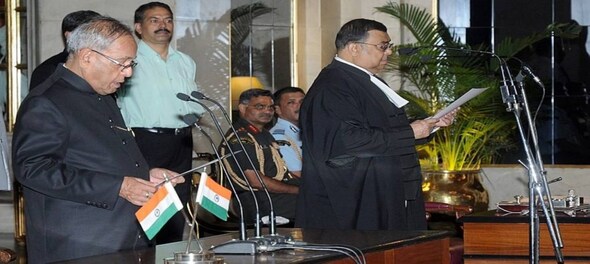
The former chief justice of the Supreme Court Altamas Kabir was born on July 19, 1948, in Kolkata and died on February 19, 2017, due to renal complications. He had done his LLB and MA from the University of Calcutta. He enrolled as an advocate in 1973 and became a permanent judge in the Calcutta High Court on August 6, 1990. On March 1, 2005, he became the chief justice of the Jharkhand High Court. The same year, Kabir was elevated to the Supreme Court on September 9.
After three years, he became the 39th chief justice of India on September 29, 2012. After a brief tenure of nine months, he retired on July 18, 2013.
On his birth anniversary, here’s a look at some of the landmark judgments by Justice Kabir:
1. During his eight-year term at the Supreme Court, Justice Kabir passed 362 judgments and was part of 698 Benches. Most of his judgments came in the year 2010.
2. He predominantly worked on criminal matters and was involved in cases around contempt of court, domestic violence and bail procedures.
3. In Sandhya Manoj Wankhade v. Manoj Bhimrao Wankhade case, Justice Kabir extended the scope of the Domestic Violence Act, 2005, to bring in the assault by female relatives.
4. In 2013, as the chief justice, he was part of the Supreme Court Bench which heard the case of the two Italian marines who had killed two Indian fishermen off the Kerala coast in February 2012.
5. In December 2012, justices Kabir and H.L. Dattu directed the Central Bureau of Investigation (CBI) to continue its investigation into the disproportionate assets case against Samajwadi Party supremo Mulayam Singh Yadav and his son Akhilesh Yadav.
6. In another noted judgement, he had decided on whether an MP suspended from a political party can continue as MP. The Bench headed by Kabir had held that despite being removed or suspended from a party, an MP could continue in the post and participate in the party’s proceedings and would be entitled to vote.
7. One controversial judgment during his tenure came from a three-judge Bench of the Supreme Court, which scrapped the National Eligibility Entrance Test (NEET) for admission to medical courses. Two judges were in favour of the verdict, but A.R. Dave dissented from the verdict. In his 35-page dissent, he hinted that it was a judgment passed with no proper discussion, apparently rushed by the imminent departure of Kabir.



